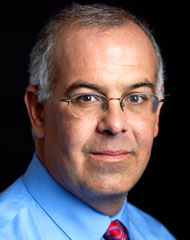In his recent op-ed in The New York Times, political and cultural commentator David Brooks writes we’re in an “age of possibility” – one in which more people are “intolerant of any arrangement that might close off their personal options” and go “through adulthood perpetually trying to keep their options open.” He thinks that the age of possibility is based on the misconception that people are “better off when they are given maximum personal freedom to do what they want.” We’re better off when we have things in our lives that “transcend personal choice.” Indeed, we experience more meaning in life when…
…it’s not all about “me me me.” But how Brooks gets to this point is what’s fraught with misconception – specifically pronatalist assumption. He seems to think that marrying and becoming a parent are necessary to a life that transcends personal choice. This just isn’t the case.
When people choose to remain single, does that automatically mean they do so because they are perpetually trying to keep their options open to having maximum freedom in life?
The same goes for those who choose to marry and not have children. When a couple decides they don’t want parenthood to be part of their marital life does it mean that they too are perpetually trying to keep their options open for a “just about the two of us” life?
Here too, hardly. As someone who has interviewed hundreds of childfree couples and written about them I can say that they too choose lives that “transcend personal choice” – the only choice it does not mean is children. So many “families of two” are out there contributing to their loved ones, families, communities and the world, and sometimes more so than those with children, because they don’t have parenthood as the central focus of their lives.
What’s underneath this misconception is another one – the pronatalist assumption that parenthood is what brings us true fulfillment in life. The truth is that parenthood is but one path to a life rich in meaning. If we can let go of the idea that parenthood is “the” way to become fulfilled, and “the” way to a selfless life, the more people will not have romanticized notions about parenthood – and marriage as well.
Assumptions about marriage and parenthood lead to a third misconception – the pronatalist assumption that we need to encourage reproduction. Brooks contends that “laws and attitudes should be biased toward family formation and fertility, including child tax credits, generous family leave policies.”
Fact: A long time ago we reached a population where we no longer need to provide incentives for people to have children, especially whenever they want whether they are ready or not. His views here too reinforce the inaccurate assumption that having children “the” way to inspire commitment to the greater good.
Brooks thinks that traditional family – the married-two-parent model – is an effective way to “induce people to care about others, become active in their communities and devote themselves to the long-term future of their nation and their kind.” It is a way, but certainly not the only way. People in all kinds of families can want and do these things.
And all kinds of families not only include families of two but singles as well. Many people who are not married or who never marry have a close knit set of friends or a tight support structure of people (including parents and not) they are not biologically related to. To them, their family-centered life is less about blood or by-marriage relation, and more about life-long bonds of caring and support.
When more people, including our smartest political and social thinkers like Brooks can let go of outdated assumptions about family structure and what truly inspires lives that better society, we’ll reach a real age of possibility.


I’ll say it. Parenthood ruined my parents’ lives. Neither of them were “born that way” to be parents. Being well educated and professional, they managed in spite of the cognitive dissonance with their true identities. But looking back it was suboptimal for both them as well as me and my sibling. I realize i would not be here if they had not given into societal pressure, which was still in force during the 1960s. However, my being here or not being here is irrelevant to the fact that they ought not have become parents. I have felt great disappointment with them, due to the fact that their true identities were not followed, and subsequently, many decisions they made in life were, in my view, driven by their resentment about having been parents.